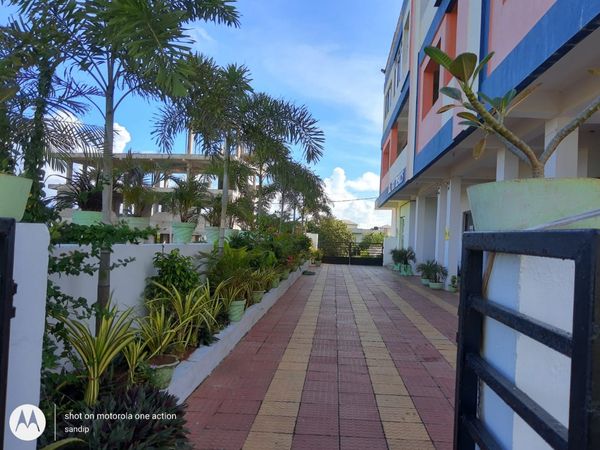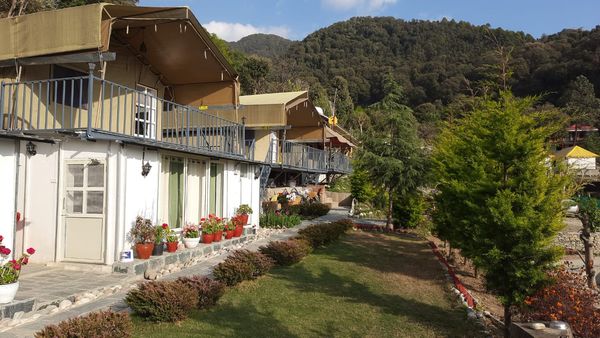Home Loan Dubai: A Complete Guide to Buying Your Dream Home
 Probo Mortgage
03 Jan, 2025
11 mins read
220
Probo Mortgage
03 Jan, 2025
11 mins read
220

What is a Home Loan?
A home loan is a financial product offered by banks and financial institutions to help individuals purchase real estate. This loan is typically secured against the property itself, meaning if you fail to repay, the lender can take possession of the property. Home loan Dubai are usually repaid in monthly installments, covering both principal and interest.
Why Consider a Home Loan in Dubai?
Dubai, known for its stunning skyline and luxury real estate, has become a hub for homebuyers worldwide. With a home loan, potential buyers can enter the property market, secure their dream home, or even invest in property for rental income. In a city that offers a wide variety of mortgage products, understanding your options is key to making an informed decision about your home loan.
Eligibility Criteria for Home Loans in Dubai
Before applying for a home loan in Dubai, it’s important to know the eligibility criteria. Different lenders may have slight variations, but generally, the requirements include:
Age Limit
Home loan applicants must be between 21 and 65 years of age at the time of loan maturity. This age window ensures that borrowers have enough time to repay the loan while maintaining a reasonable working life span.
Income and Employment Status
A stable income is a key factor in securing a home loan. Lenders usually require proof of steady employment, such as a salary certificate or bank statements. Applicants should demonstrate a consistent income level sufficient to meet loan repayments while managing other expenses.
Credit Score Requirements
A strong credit score can significantly improve your chances of loan approval. Banks and lenders in Dubai typically look for a credit score of at least 600. The higher your score, the better the chances of securing a loan at favorable terms.
Down Payment Expectations
The down payment is the initial amount you must pay upfront when purchasing a property. Typically, banks in Dubai require a down payment of at least 20-25% of the property value for residents and up to 40% for non-residents.

Types of Home Loans in Dubai
Dubai offers various home loan options to cater to different financial needs and preferences. Let’s break down the types available:
Fixed-Rate Mortgages
A fixed-rate mortgage means the interest rate remains constant throughout the loan term. This provides the borrower with predictable monthly payments, making it easier to budget. Fixed-rate mortgages are ideal for those who prefer stability in their finances.
Variable-Rate Mortgages
Unlike fixed-rate loans, variable-rate mortgages have interest rates that change according to market conditions. The rate can go up or down, which means your monthly payments may fluctuate. This type of loan can be beneficial if interest rates are expected to decrease.
Non-Resident Home Loans
Non-residents can also apply for home loans in Dubai, though they typically face stricter criteria. Higher down payments, proof of income from abroad, and a good credit history are essential to secure a loan as a non-resident.
How to Apply for a Home Loan Dubai
Applying for a home loan in Dubai is a straightforward process. Here's a step-by-step guide:
Required Documents
To begin, you’ll need to gather several documents, including:
- Valid passport and visa (for expats)
- Emirates ID (for residents)
- Proof of income (salary certificates, bank statements)
- Property details (agreement of sale or property title)
- Credit report
Steps in the Application Process
- Research: Compare mortgage rates from different banks and lenders to find the best deal.
- Pre-Approval: Many banks offer pre-approval to gauge your eligibility and how much you can borrow.
- Submit Application: Complete your application and submit all the necessary documents.
- Assessment: The bank will assess your application, credit history, and the property you wish to buy.
- Approval: If everything checks out, the bank will approve the loan and provide you with an offer.
- Sign Agreement: Once you accept the offer, you’ll sign the mortgage agreement and finalize the loan.
Factors Affecting Home Loan Interest Rates in Dubai
Interest rates play a crucial role in the cost of your mortgage. Here's what influences them:
Loan Term
Generally, longer loan terms (e.g., 25-30 years) tend to have lower monthly payments but can come with higher interest rates.
Loan Amount
The amount you borrow also affects the rate. Larger loan amounts may attract lower interest rates, as they are seen as less risky for lenders.
The Bank’s Policy
Each bank has its own criteria for setting interest rates. Some lenders may offer promotions, such as lower rates for the first year, to attract new customers.
The Central Bank of UAE’s Influence
The Central Bank of the UAE’s monetary policy can impact home loan rates in Dubai. If the central bank increases its base rate, banks may raise their home loan rates as well.
Benefits of Taking a Home Loan in Dubai
Taking out a home loan in Dubai has numerous advantages. Here are some of the key benefits:
Flexible Repayment Terms
Banks in Dubai typically offer a range of loan terms, from 15 to 25 years, allowing you to choose a repayment plan that fits your financial situation.
Potential for Property Value Appreciation
Dubai’s property market has seen significant growth over the years, and owning property can be a great investment. A home loan allows you to buy a property now and potentially benefit from its value appreciation in the future.
Tax Benefits
While Dubai does not have income tax, there are indirect tax benefits such as property tax exemptions for homeowners. Additionally, some lenders offer tax-deductible interest payments on home loans.
Common Challenges Faced by Home Loan Dubai
Despite the many benefits, home loan borrowers in Dubai face some challenges:
High Property Prices
The real estate market in Dubai can be quite expensive, especially in prime locations. Even with a loan, you might struggle to afford a home in certain areas.
Loan Approval Delays
The approval process can take time due to the rigorous documentation and credit checks required by lenders. It’s crucial to be patient during this phase.
Uncertainty in Interest Rates
The fluctuating nature of interest rates can make it challenging to predict the long-term cost of a home loan.
Tips for Securing the Best Home Loan Dubai Deal

To make sure you get the best deal on your home loan, consider these tips:
Shop Around for the Best Interest Rates
Different banks offer different rates, so it’s important to compare several options before committing.
Improve Your Credit Score
A higher credit score can help you secure a lower interest rate. Pay off outstanding debts and ensure your financial history is clean.
Opt for a Shorter Loan Term
A shorter loan term means higher monthly payments, but it can save you money in the long run by reducing the interest you pay.
Understanding the Home Loan Repayment Process in Dubai
Once your loan is approved, it’s time to understand how repayment works:
Monthly Installments
Your monthly payment typically includes both principal and interest. The amount of interest you pay will decrease over time as the principal reduces.
Prepayment Penalties
Some banks may impose a penalty for early repayment of your loan, so be sure to review the terms carefully before making extra payments.
Conclusion
Home loans in Dubai offer an excellent opportunity for potential buyers to enter the property market and secure their dream homes. Understanding the eligibility criteria, types of loans, and factors influencing interest rates is essential for making an informed decision. With the right approach and research, you can navigate the loan process with ease.
Written By:
Probo Mortgage



Hotels at your convenience
Now choose your stay according to your preference. From finding a place for your dream destination or a mere weekend getaway to business accommodations or brief stay, we have got you covered. Explore hotels as per your mood.





